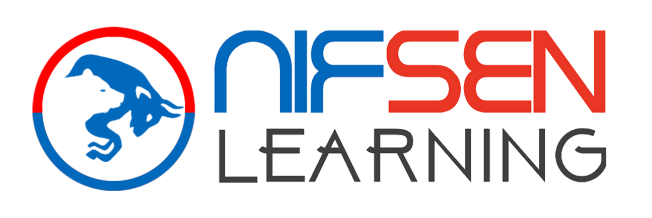Business in stock market
About Course
Are you interested in starting your own stock broking business but are not sure where to begin? Let us help you establish your stock brokerage business by providing all the necessary education and legal requirements.
- Duration: 5-6 months
Requirements:
For students familiar with the stock market, technical analysis and derivative segment Graduate and Final-year students are preferable Post Graduate, MBA preferable Anyone willing to start their business in the stock market.
Introduction and Technical Analysis Module
- Introduction to Stock Market
- Basics of Financial Market
- Introduction to Technical Analysis
- Importance of Technical Analysis
- Strengths and Weaknesses of Technical Analysis
- Types of Chart and Candlestick analysis
- Line and Candlestick chart patterns
- Support and Resistance
- Change of support and resistance zone
- Major Indicators and oscillators
- Tips for using indicators
- Volume action analysis
- Trade Entry and exit
- Trading and Investment Strategies
- Strategies for day trading and momentum trading
- Trading psychology and risk management
- Components of risk management
- Dow Theory and Elliott Wave Theory
Equity Derivatives Module
- Introduction to Derivatives
- Understanding Futures & Forwards
- Understanding Options
- Important terminology associated with futures and options
- Moneyness of an option
- Intrinsic value and time value of an option
- Basics of Option Pricing and Option Greeks
- Analysis of options from the perspectives of buyer and seller
- Use of options for trading and hedging
- Interpreting open interest and put-call ratio for trading strategies
- Strategies using Equity futures and Equity options
- Option trading strategies and hedging strategies
- Tracking Futures and Options data
- Algorithmic trading
- Understanding Index (Nifty, Bank Nifty etc)
- Types of Stock Market Indices and major indices in India
- Clearing & Settlement in India
- Trading & Margin requirements
Commodity Derivatives Module
- Introduction to Commodity Markets
- Major Commodities Traded in Derivatives Exchanges
- Participants in Commodity Derivatives
- Commodity Indices
- Commodity Futures
- Commodity Options
- Contract Specifications for Commodity Derivatives Contracts
- Tick Size and its impact
- Uses of Commodity Derivatives
- Hedging Strategies Using Commodity Derivatives
- Strategies using Equity futures and Equity options
- Option Trading Strategies using Commodity Derivatives
- Trading Mechanism in Commodity Derivatives
- Clearing, Settlement and Risk Management
- Deliveries in the Case of Physical Delivery
Dealing terminal and Back Office
- Training on live trading dealing terminals
- How to place orders on behalf of the client
- How to check the positions of the client
- How to check and modify pending orders of the client
- Understanding client legder
- Access to client information
- Terminologies used in back office
- Entries in client ledger
Currency Derivatives Module
- Introduction to Currency Market
- Foreign Exchange Derivatives
- Major Currencies and Currency Pairs
- Market Participants in the Currency Derivatives Market
- Exchange Traded Currency Futures
- Exchange Traded Currency Options
- Strategies Using Exchange Traded Currency Derivatives
- Option Trading Strategies using ETCD
- Trading Mechanism in Exchange Traded Currency Derivatives
- Clearing, Settlement and Risk Management in ETCD
- Hedging Through Exchange Traded Currency Derivatives
Mutual Fund Module
- CONCEPT AND ROLE OF A MUTUAL FUND
- Structure of Mutual Funds in India
- Key Constituents of a Mutual Fund
- MUTUAL FUND SCHEME SELECTION
- Benchmarks and Performance
- RISK, RETURN AND PERFORMANCE OF FUNDS
- MUTUAL FUND SCHEME PERFORMANCE
- LEGAL AND REGULATORY FRAMEWORK
- The NFO process
Fundamental Analysis Module
- Introduction to fundamental analysis
- Top-Down Approach in Fundamental Analysis
- Economic Data Analysis
- Global, Domestic and political events Analysis
- Industry Analysis
- Company Analysis
- Correlation of events
- Understanding financial statements (Profit and Loss statement and Balance sheet)
- Ratio Analysis of the company
- Time Value of money
Securities Markets Foundation
- Securities Markets Introduction
- Role of Securities Markets
- Market Information and Regulation
- Market Structure and Participants
- Securities available in the securities market
- Hybrid Instruments
- Understanding the factors underlying the investment process
- Primary Market: Definition and Functions
- Role and Function of the Secondary Market
- Types of secondary markets for different securities
- Structure of Derivative Markets
- Types of Derivative Products
- Risk Management in Derivative Markets
Complete Business toolkit
- Complete stock market business setup
- Required registrations and certifications
- Dealing Terminal Of their own
- Client Acquisition Support
- Sales practices and client support
After Completing The Course : -
This course will give you the knowledge and skills necessary to work as a stockbroker along with all the legal formalities. You can offer your clients access to a wide range of financial products such as demat and trading accounts, currency and commodity trading, Portfolio Management Services, Bonds and corporate deposits etc. You can also help them to open and manage their trading accounts in equity and derivative markets. You will also receive the following government-recognized certificate and other other benefits:
- NISM Series VIII (Equity Derivative Module)
- NISM Series I (Currency Derivative Module)
- NISM Series XVI (Commodity Derivative Module)
- NISM Series V-A (Mutual Funds Module)
- NISM Series-XII: Securities Markets Foundation
- NCFM Technical Analysis Module
- 3 months internship
- Dealing terminal of their own
- Complete Business Setup
- NCFM Fundamental Module
